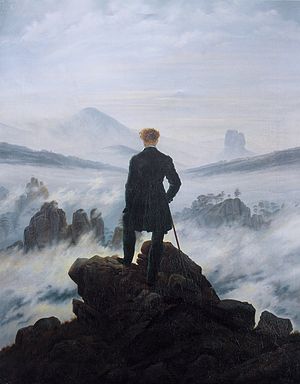Romanticism
Romanticism was an artistic, literary, and intellectual movement that originated in Europe toward the end of the 18th century and in most areas was at its peak in the approximate period from 1800 to 1850. Romanticism was characterized by its emphasis on emotion and individualism as well as glorification of all the past and nature, preferring the medieval rather than the classical. It was partly a reaction to the Industrial Revolution, the aristocratic social and political norms of the Age of Enlightenment, and the scientific rationalization of nature. It was embodied most strongly in the visual arts, music, and literature, but had a major impact on historiography, education, and the natural sciences. It had a significant and complex effect on politics, and while for much of the Romantic period it was associated with liberalism and radicalism, its longterm effect on the growth of nationalism was perhaps more significant.
The early period of the Romantic Era was a time of war, with the French Revolution followed by the Napoleonic Wars until 1815. These wars, along with the political and social turmoil that went along with them, served as the background for Romanticism. The key generation of French Romantics born between 17951805 had, in the words of one of their number, Alfred de Vigny, been conceived between battles, attended school to the rolling of drums. According to Jacques Barzun, there were three generations of Romantic artists. The first emerged in the 1790s and 1800s, the second in the 1820s, and the third later in the century.
Source: Wikipedia

